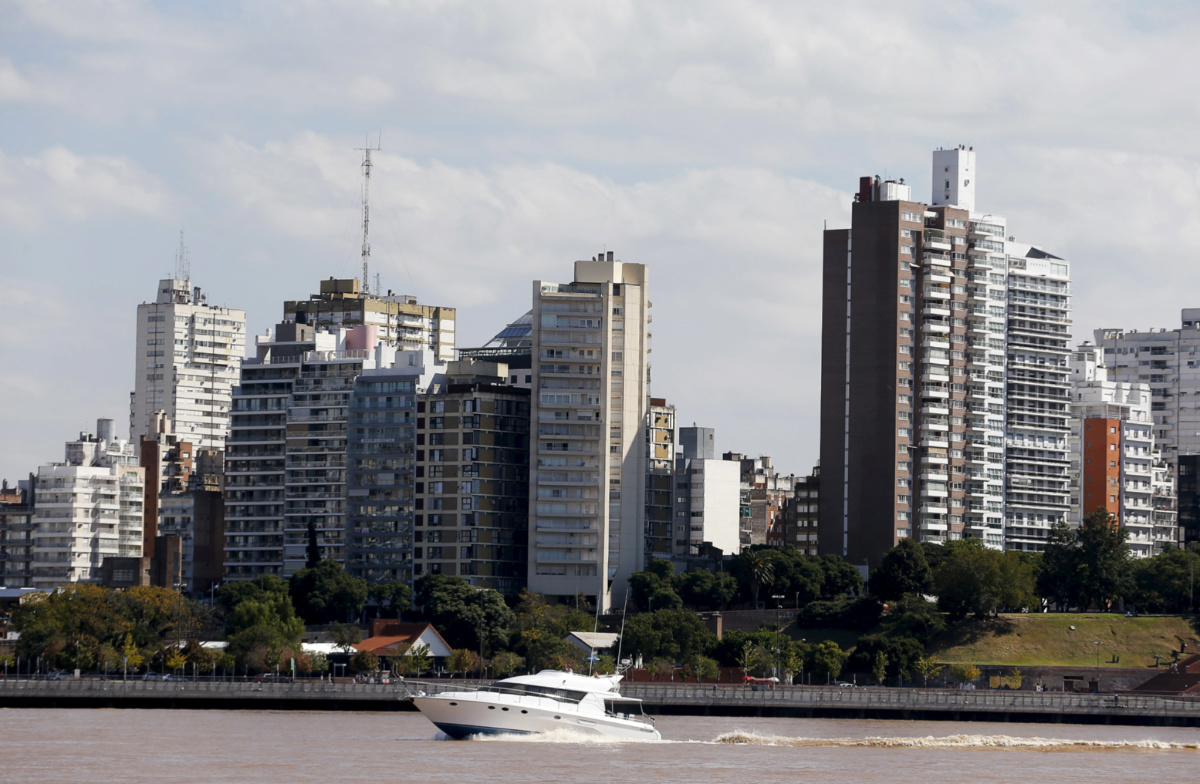
FABIO TEIXEIRA, writing for Thomson Reuters Foundation, reports on how a two-decades old project has become a pillar of the the Argentinian city of Rosario’s climate adaptation efforts…
Rio de Janeiro, Brazil
Thomson Reuters Foundation
An urban farming project in the Argentinian city of Rosario that was designed to improve food security, but evolved to boost resilience to extreme weather events and cut carbon emissions, was on Tuesday named the winner of a global prize for cities.
Rosario – in Argentina’s north-eastern Santa Fe province – won the World Resources Institute (WRI) Ross Center Prize for Cities and $US250,000 for its two-decade-old initiative.

The Parana River with Rosario city in the background on 3rd April, 2015. PICTURE: Reuters/Enrique Marcarian.
The project was set up to provide healthy local produce and livelihoods for poor families and later developed to repurpose public and private land and become a pillar of the city’s climate adaptation efforts, the WRI said.
“[Rosario has] climate impact, poverty alleviation, social inclusion,” said Anne Maassen, Global Lead for the WRI Ross Center Prize for Cities. “It is the full package of social-economic and environmental impact.”
The WRI – a Washington-based thinktank – received submissions from 160 cities across 54 countries for the annual award, which spotlights transformative urban change worldwide.
More than two-thirds of the world’s population is forecast to live in cities by 2050, according to the United Nations.
And urban farming could be crucial to feeding these people, producing as much as 180 million tonnes of food a year – or about 10 per cent of the global output of pulses and vegetables – according to a 2018 study in the journal Earth’s Future.
Rosario’s project was launched in the wake of Argentina’s 2001 economic crisis and granted temporary tenure of vacant land to the city’s poorest residents for urban agriculture.
About 300 urban farmers in Rosario now have temporary ownership of public and private land, at least 2,400 families have started their own vegetable gardens, and seven new permanent market spaces have been created, according to the WRI.
The initiative has become a fundamental part of the city’s climate adaptation planning, with green spaces helping to absorb rainfall and prevent floods while local food production cuts carbon emissions associated with the delivery of fresh produce.
Maria Cantore, Rosario’s undersecretary of environment, said she hoped the initiative could serve as a template for other cities worldwide looking to develop their own urban farms.
Cantore said the project was still going strong after 20 years despite elections and changes to the city administration, and that a new climate plan had been presented last December.
“We know we have to move forward with more green infrastructure to be more climate resilient, and also mitigate the impact of climate change,” she told the Thomson Reuters Foundation.





